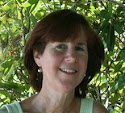By Ian Davies
My obsession with the natural world, and birds in particular, began the first time I went to Manomet Bird Observatory. Since that time in August 2004, I have spent basically all my time pursuing my bird-related interests, something that was enabled by my homeschooling, as well as the boundless support of my parents.
The person who started it all by putting that living gem of a bird in my hands goes by the name Trevor Lloyd-Evans. A Welsh immigrant, Trevor came to the US in the early 1970s to work on migratory songbird stopover ecology in Manomet, and in the past 40 years he has converted dozens if not hundreds of people to a love of the natural world, and educated thousands of children about what goes on in their back yards every day. A born teacher, he will frequently appear out of thin air to regale you with tales of the most obscure facts, bad puns, or ludicrous stories. His mellow voice with an upper-class Welsh accent is lulling on a warm day, especially when waxing poetic about politics of 14th century Europe or something equally esoteric. When reaching the crucial point of a joke or story, a mischievous smile will tweak the corners of his mouth as he dry washes his hands before delivering the culmination of his masterpiece.
The creature, the bird, the spark behind all this, is commonly called in English, the Canada Warbler; in Latin, Wilsonia Canadensis; and in Spanish, on its wintering grounds, Chipe de colar. Canada Warblers are small birds, weighing around 10 grams, or less than half of an ounce; one could mail two of them for the price of a stamp. This individual is partway through its biannual journey to Central or South America, a trip that is 2500-3500 miles one-way, something it will repeat again in the springtime and every year after that until the end of its life, most likely four or five years.
The location where this all went down is known as The Banding Lab, a place where over 300,000 birds since 1966 have been banded, measured, weighed, and released, in order to better understand population trends and migration patterns of birds. The lab itself has a very distinctive smell, a musty rich scent that is so unique that every time I enter the room I feel like I’m coming home. It is full of many strange objects, ranging from magnifying glass headsets and rusty machetes in one corner, to an arrow that’s presence is completely inexplicable, and massive ancient binders slowly disintegrating under the stress of frequent use.
When I showed up unannounced at the lab on that day with my mother, despite never having set eyes upon me in his life, Trevor was willing to set aside a chunk of his time and effort in order to show me just how intricate this bird was, and when he placed it in my hands to be released back into the wild, he unwittingly converted me to a lifestyle that defines who I am.
That first day I stayed for perhaps an hour. The next day I came back for three hours. The day after, six, then eight, and after that, the rest was history. I started off merely watching, but after coming back season after season, I started performing the processes myself, and after volunteering for close to four years, I began working there.
Working at Manomet I was able to benefit from Trevor’s omniscience daily, as well as learn about many different facets of biology and life in general. Living in dorms with my coworkers there helped to prepare me for life in “the real world” and the experience has helped me travel and get work and internships elsewhere.
Another “consequence” of homeschooling is the freedom to travel. When I was younger I would go with my parents to such locations as Spain and Costa Rica, and before I went I would find out everything there was to know about the fauna of the region. Starting last year I’ve been traveling with friends, beginning with a 10-day road trip in Panama, and culminating this year in a three-month odyssey across western South America. During these trips I would occasionally be a paid guide, which helped make contacts, and already has netted me some job offers in Ecuador that will be waiting for me at the end of college. My travels have netted me over 2,100 species of birds, a significant percentage of the approximate 10,000 species in the world, and three times as many as the 700 in the entire continental United States and Canada. My eventual goal is to see all the species in the world, but a more realistic goal would be to see 8,000 species, a feat that has been achieved by less than 10 people.
Trips and life experiences such as these would never have come to pass if it were not for my foundation of scientific and ornithological knowledge, laid down by Trevor and other kind souls at Manomet.
Ian is currently a student at University of Massachusetts Amherst, expecting to graduate with a degree in Wildlife Ecology this fall. He is still in love with travel, photography, and all aspects of nature.





No comments:
Post a Comment